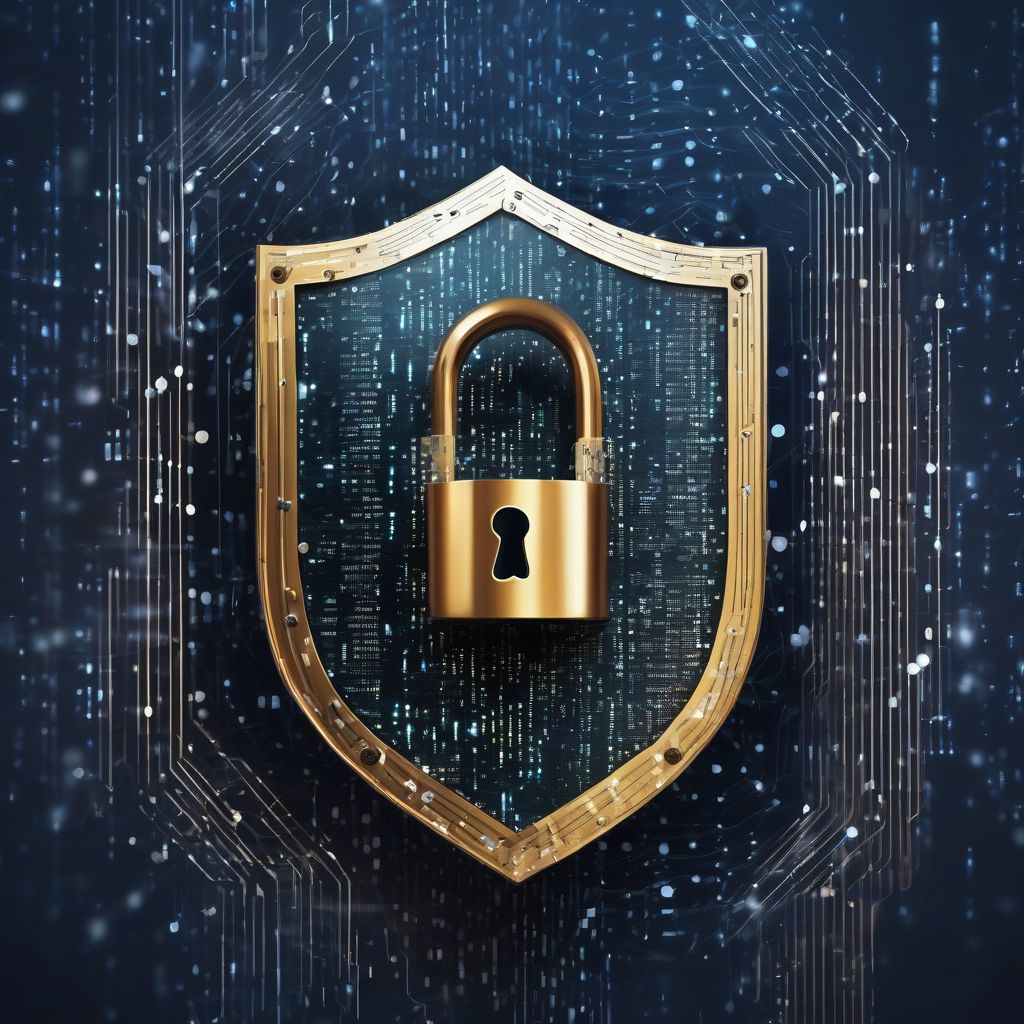Imagine this: You’re finally living the dream. Sipping coffee in your pajamas, answering emails from a beach in Bali – remote work has become your reality. But wait, are you doing everything to protect your work and yourself in the digital world?
Securing your remote work setup isn’t just about being a stickler for rules, it’s about safeguarding your dream lifestyle. It’s about making sure your work-life freedom remains sustainable, secure, and enjoyable. Just like a healthy diet fuels your body, the right security measures fuel a healthy work-from-anywhere lifestyle.
This guide will walk you through the essential tools and strategies to fortify your remote work environment. Think of it as your personalized meal plan for digital security, ensuring you have all the right ingredients for a safe and productive workday, wherever that may be.
Understanding the Risks: What’s on the Line?
Before we dive into the solutions, let’s understand the potential pitfalls of an unsecured remote work setup:
- Data Breaches: Public Wi-Fi, unsecured websites, and phishing emails are just a few ways cybercriminals can access your sensitive information, putting both you and your company at risk.
- Malware Attacks: Downloading a seemingly harmless file or clicking on a malicious link can infect your device with malware, compromising your data and system stability.
- Device Theft: Losing your laptop or smartphone that holds valuable work data can have serious consequences for your work and reputation.
Feeling a bit vulnerable? Don’t worry, let’s build your security toolkit!
Essential Tools to Secure Your Remote Work Setup
1. Virtual Private Network (VPN): Your Invisibility Cloak
Imagine accessing the internet from a private tunnel, shielding your online activity from prying eyes. That’s essentially what a VPN does. It encrypts your internet connection, making your data unreadable to anyone trying to intercept it.
Why it’s crucial for remote workers:
- Public Wi-Fi Security: Using public Wi-Fi without a VPN is like leaving your front door wide open. A VPN encrypts your connection, protecting your data from hackers lurking on the same network.
- Geo-Blocking Bypass: Need to access region-restricted websites or content for work? A VPN can mask your IP address, allowing you to bypass these restrictions.
Expert Tip: Look for VPN providers with a strict no-logs policy, ensuring your online activity remains private.
2. Strong Passwords and Password Managers: The Gatekeepers of Your Digital Kingdom
Using “password123” is like using a flimsy twig to lock your front door. Strong, unique passwords are the first line of defense against unauthorized access.
Why they matter:
- Preventing Brute-Force Attacks: Complex passwords make it significantly harder for hackers to guess or crack your accounts through automated methods.
- Mitigating Password Reuse Risks: Using the same password across multiple platforms means if one account is compromised, all your accounts are at risk.
Password Managers to the Rescue: Remembering a dozen complex passwords is a recipe for a headache. Password managers store and encrypt your passwords, so you only need to remember one master password.
Expert Tip: Enable two-factor authentication (2FA) whenever possible for an extra layer of security.
3. Firewall: Your Digital Bodyguard
Consider a firewall as your personal bodyguard, constantly monitoring incoming and outgoing network traffic. It blocks any suspicious activity, preventing unauthorized access to your device and network.
Why it’s essential:
- Blocking Malicious Traffic: Firewalls act as a barrier against malicious software and hackers attempting to access your device or network.
- Preventing Data Leaks: They prevent sensitive data from leaving your network without your permission, protecting your company and yourself.
Expert Tip: Most operating systems come with built-in firewalls. Ensure yours is enabled and consider investing in a more robust third-party firewall for enhanced protection.
4. Antivirus Software: Your Digital Immune System
Just like our bodies need an immune system to fight off viruses, our devices need antivirus software to combat digital threats. Antivirus software scans for, detects, and removes malicious software like viruses, malware, and ransomware.
Why it’s crucial:
- Real-Time Protection: Antivirus software provides continuous protection by scanning files and websites in real-time, preventing you from accidentally downloading or accessing malicious content.
- Regular System Scans: Regular system scans help identify and remove any existing threats that may have slipped through the cracks.
Expert Tip: Choose a reputable antivirus software that offers real-time protection, automatic updates, and regular system scans.
 Cybersecurity Shield
Cybersecurity Shield
5. Secure Wi-Fi Network: The Foundation of Your Remote Work Fortress
Your home Wi-Fi network is the foundation of your remote work setup. Ensuring it’s secure is non-negotiable.
How to strengthen your Wi-Fi security:
- Strong Password Protection: Use a strong, unique password for your Wi-Fi network, making it difficult for unauthorized users to connect.
- Enable Network Encryption: Choose WPA2 or WPA3 encryption protocols, which offer the highest level of security for your wireless network.
- Disable WPS: Wi-Fi Protected Setup (WPS) can be vulnerable to security breaches; it’s best to disable it.
Expert Tip: Consider setting up a guest network for visitors, keeping your primary network and devices separate and more secure.
Best Practices for a Secure Remote Work Environment
Beyond the essential tools, incorporating these best practices into your daily routine can significantly bolster your remote work security:
- Regular Software Updates: Update your operating system, applications, and security software regularly. These updates often include security patches that address known vulnerabilities.
- Beware of Phishing Attempts: Be cautious of suspicious emails, links, and attachments. Verify the sender’s authenticity before clicking or downloading anything.
- Back Up Your Data: Regularly back up your important work files to an external hard drive or cloud storage service. In case of a device failure or cyberattack, you’ll have a copy of your data.
- Secure Device Disposal: If you’re selling or discarding an old device, ensure you completely wipe its data to prevent unauthorized access to your information.
Conclusion: Building Your Remote Work Security Fortress
Securing your remote work setup might seem like an extra task on your to-do list, but it’s an investment in your peace of mind and the longevity of your work-from-anywhere lifestyle. By implementing the right tools and practices, you’re building a fortress around your work and personal data, allowing you to enjoy the freedom and flexibility of remote work with confidence.
Remember, just like maintaining a healthy lifestyle requires consistent effort, so does maintaining a secure digital environment. Stay informed, stay vigilant, and enjoy the freedom of working from anywhere securely.
Now, what steps are you taking today to fortify your remote work setup? Share your thoughts and security tips in the comments below! And for more insights on thriving in the world of remote work, check out our articles on how to stay motivated and productive as a freelancer and choosing the best software for remote collaboration.
[amazon bestseller=”password manager”]
